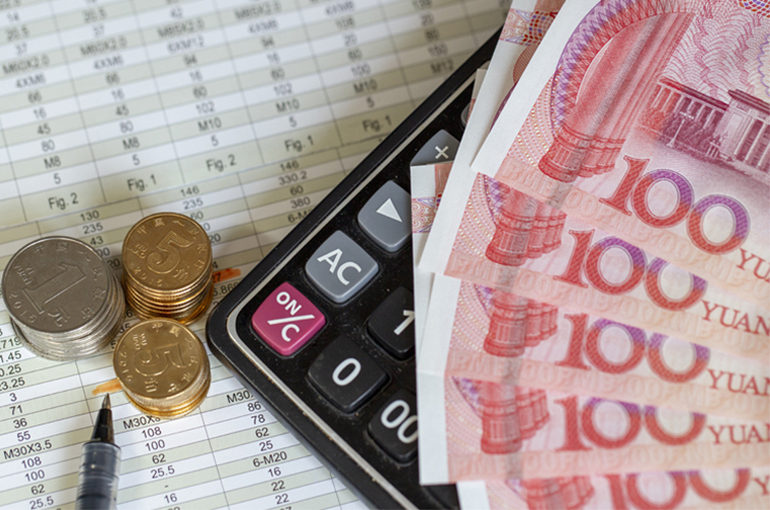 Bond Interest Costs Chinese Localities Over CNY1 Trillion for First Time in January to September
Bond Interest Costs Chinese Localities Over CNY1 Trillion for First Time in January to September(Yicai) Oct. 30 -- Interest payments on China’s local government bonds exceeded CNY1 trillion (USD140.4 billion) for the first time in the January to September period because of rising debt levels and slower fiscal revenue growth, while remaining manageable and within a safe level.
Local administrations paid a record-breaking CNY1.04 trillion of interest on bonds in the nine months ended Sept. 30, with their total debt rising to almost CNY45 trillion (USD6.28 trillion) from about CNY21 trillion in late 2019, according to data released by the finance ministry yesterday.
Since most principal payments can be rolled over, the debt servicing pressure on localities mainly takes the form of interest payments, where administrations need to rely on their own fiscal funds.
An important indicator of interest payment pressure is the ratio of interest payments on general and special bonds to total fiscal expenditure, with a threshold of 10 percent seen as a critical level. Beyond that point, local governments need to introduce fiscal reforms, as outlined by the General Office of the State Council in 2016.
In the first three quarters of 2024, bond interest payments accounted for 4.5 percent of local budget expenditure, up from 4.1 percent a year earlier, according to official data. While increasing, the ratio remains below the 10 percent level, indicating that the situation is still manageable.
The increase was due partly to a surge in bond sales since the pandemic, as local governments have continued borrowing to support economic growth. Slowing growth, big tax and fee cuts, and a sluggish real estate and land market have crimped fiscal revenue growth in recent years, further fueling debt servicing pressures.
The figures exclude local government hidden debts, though China is working on a mitigation plan. Finance Minister Lan Fo’an announced on Oct. 12 that the government is considering a one-time increase in the local government debt ceiling to support the replacement of hidden debt through additional bond issuance.
Raising the debt ceiling requires approval from the Standing Committee of the National People's Congress. It is expected to be put before the 12th session of the Standing Committee of the 14th NPC, which will be held between Nov. 4 and 8.
Editors: Xu Wei, Emmi Laine